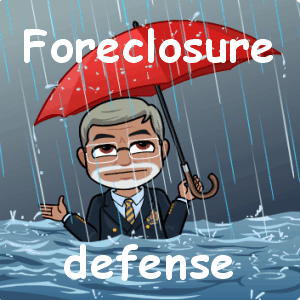Responsive Real Estate Law
Santillán Law, P.C. are experienced Pennsylvania real estate attorneys. Our primary goal within our real estate practice is to help you both understand the relevant law and assure the application of that law fits your situation.
We represent individuals and businesses in a variety of general real estate advice and litigation including tax sale appeals, mortgage foreclosure defense, set aside sheriff’s sales, and quiet title actions.
Contact us to make a no obligation appointment. We are here to help you!
What is Real Estate Law?
Real estate and real property law are the rules that govern land and the structures on it. Real estate law directly and indirectly impacts landlords, home buyers, home sellers, renters and anyone who is using real property. In addition Real estate law covers property tax, foreclosure, and the sale of property for unpaid taxes. It is important to understand your rights and responsibilities when engaging in any real estate transaction.
We represent individuals and businesses in a variety of general real estate advice and litigation including tax sale appeals, mortgage foreclosure defense, set aside sheriff’s sales, and quiet title actions. For more information about Real estate law and common terms used in real estate Law, please review our FAQs
General Real Estate FAQ
A quiet title action, also known as an action of quiet title, is a circuit court action—or lawsuit—that is filed with the intended purpose to establish or settle the title to a property. They are particularly prevalent in cases where there is a disagreement on the title. The lawsuit is meant to remove, or “quiet,” a claim or objection to a title.
Foreclosure happens when a borrower fails to pay their mortgage payments and the lender or mortgage investor must repossess the home. Foreclosure can also happen when the homeowner fails to pay their property taxes or homeowners association fees.
Do not ignore notice of tax sale. If you know you owe the taxes you may be able to negotiate a settlement or payment plan. If you do not think you owe taxes then it is imperative to seek legal council to understand exactly what is in arrears and what you can do to remedy the situation before your property is sold in a sheriffs sale.
A Tax Sale is a public auction of tax deeds and/or tax liens used to recover delinquent real property taxes.The primary purpose is to collect delinquent taxes. The back taxes, penalties and interest due are recouped by: (1) forcing payment of property taxes by a current property owner via threat of sale, or (2) via a public auction of delinquent property or tax liens.
Tax Sales Appeals
Property tax litigation in Pennsylvania requires understanding local rules and local personalities. Real Estate Tax decisions are made at the county level with the Court of Common Pleas. In the event that a taxpayer is unsuccessful at the Common Pleas level, the taxpayer must file a subsequent appeal to the Pennsylvania Commonwealth Court. This process is expensive and time-consuming.
Accordingly, because there are few state court decisions, taxpayers should recognize the practical relevance of the situation, which is to build local relationships with assessors and opposing counsel. It is imperative to find counsel who understands the appeals process and understand what motivates your opposition so that your attorney may be able to create a reasonable & cost-effective win-win situation.
The successful real estate law attorney will look for a mutually agreeable result, through relationships forged over time. Santillán Law, P.C. has gained insight to properly understand your opposition, the judge, and the peculiarities of the county, in order to counsel you on how best to litigate and win your appeal.
Contact us to set up a no obligation appointment. We are here to help you on your journey to financial recovery!
Back to Top of Page
Tax Sales Appeals Case Law
State statutory interest rate is appropriate cramdown interest rate for tax liens under § 1325(a)(5). “Since municipalities are not for-profit lending institutions and do not regularly extend loans that can be used to determine the appropriate rate of interest, the case at bar is not on all-fours with [GMAC v. Jones (In re Jones), 999 F.2d 63 (3d Cir. 1993)]. . . . [T]he closest analog to the market loan in Jones is the statutory interest rate here. While the analogy is not perfect, it is sufficient: an entity forced to delay payment that it is entitled to receive is, in effect, extending a loan. And the rate that the municipality charges for those that coerce loans by not paying their property tax bills is twelve percent.”
To Read the full decision
The United States Bankruptcy Court in the matter of In re RGW Properties of Beaver County, Inc. , __ B.R. __ (2017), 2017 WL 658233 (Bankr.W.D.Pa. 2017), determined that RGW (investor) had obtained ownership of property through a presumptively valid tax sale. As such, the property ownership was confirmed by State Court and not attacked by the mortgage company in a timely manner under Pennsylvania law. The execution and recording of a deed raised a presumption of validity which placed the burden of proof on any party seeking to challenge the transfer. The Court determined that the investor acted in good faith under Section 1129(b) of the Code by agreeing to pay the FMV of the property within the Plan with appropriate interest pursuant to the United States Supreme Court’s decision in Till v. SCS Credit Corp., 541 U.S. 465, 124 S.Ct. 1951, 158
L.Ed.2d 787 (2004). Ultimately, the Court confirmed the investor’s Plan which provided for the reamortization of the mortgage at $24,000 at 5% over 10 years.
To read the full decision please
The Internal Revenue Service may not place a “freeze” or “automatic hold” on Debtor’s funds pending court-approved relief from stay.
To read the full decision please
A Debtor may potentially exempt the IRA Annuities under § 522(d)(10)(E) because (a) an IRA is similar to “a stock bonus, pension, profit-sharing, or annuity . . . plan or contract,” and (b) at the time of the debtors\’ petition filing, had a sufficiently present right to receive payment from the IRA Annuities.
This case’s analysis was incorporated into the U.S. Supreme Court’s holding in Rousey v Jacoway, 544 U.S. (2005) which the Court held that Individual Retirement Accounts (IRAs) qualify for certain exemptions under Title 11 of the United States Code.
To read the full decision please
Battisti’s home should not have been sold at a tax sale for $113,000 to satisfy a $235 delinquency
because the tax claim bureau did not issue an invoice for the money she owed, and did
not offer an installment plan option for repaying the delinquency. The court pointed out
that the bureau was required to offer a plan if the taxpayer paid at least 25 percent of the
total debt, and Battisti had paid 90 percent. [Battisti II] .
Commonwealth Court reminded Tax Claim Bureaus that “The purpose of the Real Estate
Tax Sale Law is to ensure the collection of taxes, not to deprive citizens of their property
or to create investment opportunities for those who attend tax sales”.
• To Satisfy Due Process, the Tax Claim Bureau must notify the Taxpayer of her rights under
Section 603 after it has received in excess of 25% of the outstanding amount
• Because the 603 installment plan was not offered to Ms. Battisti, reversed and sale set aside
HOLDINGS: [1]-ln a case involving a tax sale of a taxpayer’s home to in order to satisfy a 2009 tax
delinquency of$ 234.72, the order refusing to set aside the tax sale was reversed because the county
tax claim bureau failed to offer the taxpayer an installment plan option as required by the Real Estate
Tax Sale Law, 72 Pa. Stat. Ann.§ 5860.603.
Outcome: Order reversed.
To read the full decision please
Our Firm represented Ms. Battisti through two (2) successful appeals and a trial.
Ultimately, the tax sale laws were enforced by Commonwealth Court as it held that: (a)
Once an appeal is filed from the tax sale of property, the homeowner is entitled to a trial
to prove that the Tax Claim Bureau did not follow strict conformance with the law and
that a purchaser of property at tax sale could not take advantage of the Rules of Civil
Procedure to argue that the sale should be upheld [Battisti I].
HOLDINGS: (1]-A trial court erred by denying a taxpayer’s petition to set aside the sale of her home at an
upset tax sale involving a total delinquency of $28.25 because after she filed objections, she was
entitled to an evidentiary hearing under the Real Estate Tax Sale Law, 72 Pa. Stat. Ann. § 5860.607(d), to
determine if the county tax claim bureau had met its burden of proving strict conformance with the
notice provisions of the Real Estate Tax Sale Law; [2]-The Pennsylvania Rules of Civil Procedure did not
apply to a § 5860.607 proceeding; [3]-Objections and a petition to set aside a tax sale filed by a taxpayer
were not pleadings as defined in Pa.R.C.P. No. 1017.
Outcome: Order vacated; case remanded to trial court for an evidentiary hearing.
To read the full decision please
Defense To Foreclosure
In the past, successful defenses against foreclosure were relatively rare. Since the foreclosure crisis and Great Recession, however, many homeowners have successfully challenged foreclosure actions. This is due, in large part, to the unearthing of more and more evidence that the mortgage servicing industry has been rife with errors. Because of this evidence, courts that once rubber-stamped foreclosure actions have shifted their sympathies towards homeowners. An attorney with a strong background in real estate law can help you prevent foreclosure on your property.
To understand the common defenses that you may use to avoid or stop foreclosure please read the FAQ. These are not the only possible defenses to foreclosure but they are the most common and effective defenses that homeowners with their attorneys typically use.
Foreclosure Defenses
Each state has specific procedures for foreclosures. In some cases, the foreclosing bank doesn’t follow state procedural requirements for bringing a foreclosure action. If this happens, you might be able to challenge the foreclosure. If your challenge is successful, the court will issue an order requiring the foreclosing bank to start over.
Only the loan holder (the loan owner or someone acting on the owner’s behalf) may foreclose. If the foreclosing party can’t prove it owns the loan, then it doesn’t have standing to foreclose. Banks sometimes have trouble producing the promissory note proving loan ownership. In many cases, the debt has been sold to different banks and investors—sometimes over and over again. If
the loan was bundled and securitized, determining if the foreclosing party actually owns it can be even more of a challenge. Even in situations where the original note is available, the endorsements sometimes aren’t in order. These days, banks and investors are pretty careful about addressing any gaps in their paperwork before initiating a foreclosure. Also, courts all over the country have heard many cases on standing and have decided against homeowners in many situations. It’s now much more difficult to win your case based a standing argument; though, your case might be the exception.
Mortgage servicers make mistakes all the time when they’re dealing with borrowers and their
accounts. You might be able to challenge the foreclosure based on mistakes such as:
-
- Crediting your payments to the wrong party (so you weren’t, in fact, delinquent to the extent asserted)
- Dual-tracking (pursuing a foreclosure at the same time a loan modification or other foreclosure avoidance option, like a short sale or deed in lieu of foreclosure, is pending) in violation of federal law or maybe state law, if applicable
- Imposing excessive fees or fees not authorized by mortgage contract, or
- Substantially overstating the amount you must pay to reinstate your mortgage.
If you’re on active military duty, the Service members Civil Relief Act (SCRA) provides you with special protections. Most importantly, if you took out your mortgage before you were on active duty, your foreclosure must take place in court even if foreclosures in your state customarily occur outside of court, unless the lender gets a waiver from you.
How to Raise a Defense to Foreclosure
In order to raise a defense to a foreclosure action, you must bring the issue before a judge. This is automatic in about half the states, where foreclosures are judicial, which means the foreclosure is accomplished through a civil lawsuit.
Hiring an Attorney
Santillán Law, P.C. has gained insight to properly understand your opposition, the judge, and the peculiarities of the county, in order to counsel you on how best to determine whether procedural or substantive irregularities are evident which would allow for a successful defense to an action in Mortgage Foreclosure.
Contact us to set up a no obligation appointment. We are here to help you.
Back to Top of Page
Quiet Title Actions
Owners, purchasers and sellers of real property in Pennsylvania have a strong interest in making sure that the title to the property is free of any defects or competing claims. A cloud on the title can hold up a sale or refinancing. Title insurance provides some protection, but the insurer may refuse to issue a title insurance policy on the property if there is a title defect or unresolved claim.
Actions to quiet title are a very useful tool for resolving competing claims to real estate and establishing clear and insurable title in the state of Pennsylvania. In a quiet title action, a party with an interest in the property files a lawsuit against any other parties who have an apparent claim to an interest in the property.
Quiet title actions are particularly useful when a property owner claims that another party has fraudulently conveyed the property, which might occur, for example, by coercion or a forged deed. These actions also are sometimes used by owners who have lost their property at a judicial sale or a tax sale in order to allege that the sale was improper or by purchasers of property at such sales to remove any claims by the former owner.
In Pennsylvania, actions to quiet title are heard by a judge, not a jury. If the plaintiff prevails, title is conclusively established against the adverse claims. In many cases, especially those involving very old claims or defects, the adverse parties fail to appear, which results in a default victory for the plaintiff. Once judgment is entered for the plaintiff, the defendants are forever barred from asserting their claims.
Quiet title actions require a thorough understanding of real estate laws and careful attention to court procedure. If you are interested in establishing clear title to a piece of real estate we can help.
Source: Court of Common Pleas of Philadelphia County, “Quiet Title Packet,”
Contact us to set up a no obligation appointment. We are here to help you.
Back to Top of Page
This website is for informational purposes only and does not provide legal advice. Please do not act or refrain from acting based on anything you read on this site. Using this site or communicating with Santillán Law P.C. through this site does not form an attorney/client relationship. This site is legal advertising. Please review the full disclaimer for more information. (Click Here for Full Disclaimer Page)




